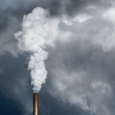Oil, Coal, and Gas Regulations
Oil, gas, and coal are three of the most widely used energy sources in America. Unfortunately, all three take a terrible toll on human populations and the environment, both during the extraction process and use. Government agencies including the Bureau of Ocean Energy Management, Regulation and Enforcement (BOEMRE) and the Environmental Protection Agency (EPA) monitor and regulate these economic sectors, and numerous laws have been passed to address the negative externalities created by these industries.
Commentary
PG&E’s success in Washington led to failure in San Bruno
Cry Wolf Quotes
If the Coast Guard implements a regulation requiring the certificates, but if there are no insurers willing to back them, then there is the possibility that all tankers would be banned from US waters.
[The Oil Pollution Act] also raises fundamental questions as to whether oil companies will be willing to pay for responsible parties to stay in the business of transporting crude, or whether vessel operators will prosper who engage in a game of roulette with the liability limits.
[By exposing shipowners to an uninsurable level of liability, the act is] 'driving away from U.S. trading many responsible shipowners who may well possess the safest tankers and the most solid financial backing to cope with pollution damage claims.'
...we are not supportive of the extensive, prescriptive regulations as proposed in this rule. We believe industry's current safety and environmental statistics demonstrate that the voluntary programs implemented since the adoption of API RP 75 have been and continue to be very successful.



